In this new Infobunny article we are talking Google Ranking Factors and more importantly, the top 3 ranking factors to pay attention to.
Let’s get started

Have you ever wondered what the most important Google ranking factors are?
I know you have.
I know that because here you are, tapping your feet on the ground, taping and waiting, and still waiting.
Don’t be so impatient- it’s coming and fast, and these ranking factors aren’t going anywhere.
Now:
I am not going to tell you about all 200 Google ranking factors or about just the one, the most important one
(“Hey what is it? Tell me, do tell me now”!)
I will… below 🙂
Instead, this article will explain what the crucial 3 Google ranking factors are (that also work for Bing/Yahoo).
If you can learn and implement these, I guarantee you’ll see some long term, sweet results, and quickly too.
Ready to get started?
Let’s go!
Google Ranking Factor #1- Content – One King to Rule Them All
Writing is both a skill and an art.
Luckily, you don’t need to be a word wizard to craft compelling copy.
Web writing is not the same as writing novels or poetry, phew.
Now that you know you CAN write for the web, let’s see what makes content rock as a Google ranking factor:
- Great Headline
- Deep topic understanding (hint: it’s research)
- Thorough
- Well Formatted
a) Articles start with a headline, and so shall we
David Ogilvy once said,
“On average, five times as many people read the headline as read the body copy. When you have written your headline, you have spent eighty cents out of your dollar”.
True then» true now.
However, he said it at a time when the written word was considered to be semi-sacred.
You generally needed less convincing headlines for a person to open up a newspaper and start to read.
Perusing newspapers in those days- it was a thing of prestige.
Nowadays, an average American is inundated with news from around the globe and is exposed to 247 commercials every single day, and it’s the same for most people in the civilized world.
My point is:
We are so bombarded with information that we’ve developed a short attention span as a defence mechanism against it.
By not focusing, by filtering out so many irrelevant things we’re able to function somewhat normally.
Quick, rapid-fire question- Can you drive and read at the same time?
No?
And I hope you don’t?
For yours and other driver’s sake.
The goal for you as a marketer is to understand the “marketing noise” and try to connect with the potential reader on a more personal level.
This is done through writing clever headlines that convert searchers into clickers (I invented the word).
But it’s not that simple as just planting your butt on the chair and typing away.
I’m sure you already know that writing persuasive copy takes a lot of practice and effort.
What makes you think writing catchy headlines is any different?
Ahh, You hoped for it to be true!
Sorry- but no such luck.
Here’s the next best thing though; tips to get you started right away:
- Be clear, concise and target a specific pain point
- Promise a quick solution- a clear benefit with little effort
- Use numbers if applicable- these kinds of headlines get clicked on like crazy
- Make your headline a two-parter- the second should part boost and strengthen the overall message
- Use negative words– your article will appear more honest
- Use words that empower and inspire the reader
Testing time – My headline for this post is: “Google Search Engine Ranking Factors- Know these 3 and Stick Your Pole on the Hilltop that is Google’s Page One“.
Tell me in the comments:
How many tips did I use when crafting this article’s title?
(Hint: I will never use all of them and neither should you).
Writing headlines isn’t easy.
There are so many variables to think of, and so much research went into figuring out the magic formula that works every time.
And you know what they’ve discovered?
There is none.
A superb headline here can flop there and vice versa.
However, with that said, those tips above are proven to work most of the time and by testing things out you will find your own magic formula.
Test Test Test- see what works Best (just please don’t rhyme in your headlines, or at least test it first) 🙂
Note– Dexter has an excellent guide on headlines you should read.
b) Research first, write later
You should never publish a 100% opinionated article.
Yes, it is good to have an opinion and to express it freely.
Yes, it doesn’t have to be in concord with everyone else.
In fact, it can be a complete opposite (and like that generate quite a buzz),
But:
Everything you write, be it a blog post about getting the right type of backlinks to your site, or a lifestyle blog post about whatever, must be backed up by data, by research.
If you look around you’ll see that this post has plenty of external links.
That is because I researched a lot before writing.
Gathering data is crucial, for the success of any article and for you your credibility as an author.
If you had to take just one writing tip from this post- let it be this one.
I mean, think about it:
Who am I for you to listen to me?
How do you know I’m not just blowing hot air?
If you met me on the street and I said: “planet Mars has the highest mountain in the solar system. It’s called “Olympus”. Would you believe me, if I hadn’t followed it with “according to NASA’s report”?
No, no you wouldn’t.
The same is with content.
Research well, so that you get a sound sleep at night.
When guarded by trustworthy external links, who wouldn’t sleep tight, right?
Join the conversation - We are talking Google Ranking Factors and more importantly, the top 3 ranking factors to pay attention to. Click To Tweetc) Be as thorough as you can- so you can truly help
Now, this is something I see people still stubbornly stick to.
Writing 500-word posts.
When all data clearly shows that Google favours in-depth content (2000+ words).
But you shouldn’t be writing long-form articles for Google, that’d be wrong in so many ways.
Instead, do it for the reader.
Tell me, what is the basis for any keyword?
Almost always- it is a question.
And what is a question?
It is a problem.
So, your reader is worried about something and you claim (with your article) to have a solution.
Let’s say they click on your result in the SERP’s (you had a catchy headline- it promised the world), land on your page and find what?
A 500-word blurb on a serious problem for them.
What’s more, the article is very rich with… affiliate links. 
Meaning, you already “know” the cure for their problems but couldn’t be bothered to research, to listen and try to understand them better.
They should just buy and spend their hard earned cash.
Take a look at the picture above.
That person carries an umbrella, it’s raining. So you offer him a better umbrella (and it’s cheap).
That is fine, that’s dandy, but you don’t see that he doesn’t need another umbrella. It is extremely cold and windy outside.
A cold wind is blowing and he is half frozen.
No, another umbrella won’t do.
What he really needs is a warm electronic blanket and a cup of steaming cocoa.
And I would go that extra mile and provide him with marshmallows- but that is optional.
Bottom line: If they see you understand their pain, they’ll be receptive to your desire to convert them.
If they see you don’t care about them at all, they’ll leave for good and label your site as a huge time waster.
d) Simplicity- format your copy to promote good flow
Focus on keeping things simple to read and understand.
This means having:
- Shorter paragraphs, 3 to 5 sentences at most.
- Short and concise sentences.
- Using common language and niche-specific wordage (that everyone in the niche can understand)
- Plenty of images, videos and other media
- Lots of interesting subheadings that clearly divide the article
- Use boldface strategically
There isn’t much to formatting than this.
At least at the beginner level when we aren’t really focused on increasing conversions through strategic page layout.
Focus on improving readability and construct your pages so that they lead from: A» B» C» CTA (call to action).
Because when you do, people will read and people will buy from you.
Finally: Before stamping the seal of approval on anything, read your article again.
But this time try to look at it from an outsiders perspective.
Try to gauge “the feel” of it.
Or simply get a friend’s opinion.
Note: Content- it’s a word imbued with massive meaning.
I could never cover even a silver sliver of it,
That is why you need to educate yourself further so every piece you make has the largest impact possible.
Take a look at these articles:
-
Content Strategies to Attract Your Target Audience
-
Blog Content Ideas – A Complete Guide To Finding Content Ideas That Actually Convert
-
How To Create Evergreen Articles For Your Blog?
-
The Essential 7- a Simple SEO Checklist for Higher Rankings, Today
-
How to Generate 10+ Content Ideas to Blog About in 2019
Google Ranking Factor #2- Backlinks- be wise when dealing with them
Backlinks are a huge factor (though slowly fading in importance) and you need to do something about building them.
However: there are two very different approaches to link building:
a) Actively build backlinks
You as a webmaster write excellent content and then reach out to other webmasters asking for a link.
This is totally feasible and a fast way to get powerful links- if you know what you are doing.
And that’s a huge IF.
Often, this type of link building doesn’t work at all.
People either email all the wrong people or their content is mediocre.
This gets them little return on their investment and leaves them disappointed, having wasted a lot of time and sometimes money
If you ‘re a newbie blogger:
This is not for you!
Usually, your content will not be the best “of its class” and you’ll never earn links with sub-par posts.
I find that people who are successful with outreach-based link building are those who’ve had years of previous experience with writing for the web.
And the content they produce is of insane quality (not just words but design too).
However,
You shouldn’t give up on backlinks completely.
There are easy tactics that yield good results for newbie bloggers.
Here are some of my favourites.
#1- Directories
Most are crap- but few are golden.
Those that have worth are definitely worth the effort.
They have both high authority and insane trust.
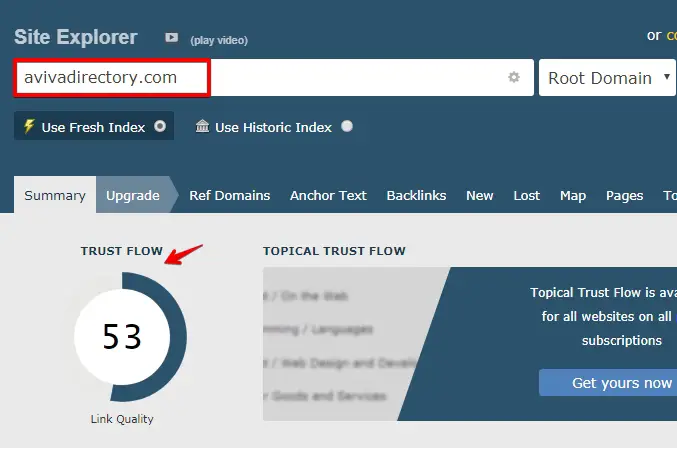
They’re trusted sites, plain and simple and if you get your name there, you will inherit a small chunk of that trust too.
Some of the best directories to submit your site to are:
- DirJournal.com
- Abilogic.com
- JasmineDirectory.com
- BOTW (Best of the Web)
- AvivaDirectory.com
- AliveDirectory.com
- etc
#2- Expert roundups
These abound in every niche. Basically, one blogger decides to write a post about X and instead of writing all on his own, they ask other bloggers to contribute. And when they do, said bloggers are rewarded with a link to their site.
Here’s an example of a massive roundup about blogging mistakes:
#3 – Blogger interviews
For a newbie blogger, it is crucial that you make friends.
Blogging for a living is hard, and it gets exponentially harder if you try to do it on your own.
That is why you need blogging friends to promote you.
To:
- comment on each others posts
- share each other’s articles
- invite each other on interviews
Interviews are easy.
You’re simply telling your story as it is and what you have to offer as a blogger.
For example.
I recently got invited to do an interview with Nirvana Guha of SEO Elixir.
He asked me if I wanted to answer some questions, I said yes and he sent them over.
Of course, I did my best to provide value and now that interview is published with on his site.
And it has not one, not two, but four backlinks pointing to my site.
You can imagine how that helps my small site flourish in Google?
Plus its brand building because folks can learn about me and what I do.
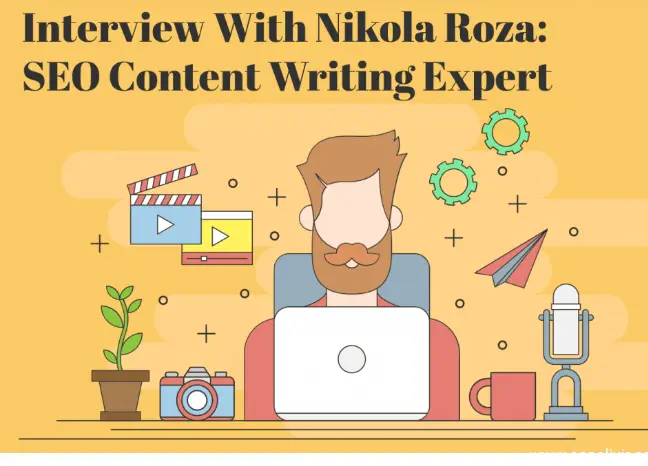
Bonus tip
There is a way to reach out to people and not spam them.
Use external links in abundance.
When you link to another website their webmaster will notice and feel obliged to return the favour in the future.
This is because you linking to them helps them rank,
But also because it boosts their ego quite a bit.
It means you value their work and praise them; and I tell you now: everybody loves to be praised- even people who know that they love it. 🙂
Note:
Instead of waiting for things to happen on their own, be proactive and tell them you linked to them.
Here’s an outreach template I use.
Feel free to “borrow” it.
“Hi, Name.
My name is “Your Name” and I write at “your blog”. Recently I published a blog post about “x”, and within that article, I link to your article about “x”. The anchor text is “anchor text” and here’s the link if you want to check it out.
Cheers!”
Your Name.
I tell you- this approach works very well.
b) Earn Your Links
Yes, links can be earned.
As people at Google put it “all quality content naturally gets links”.
My advice. Focus on the writing part of content marketing.
Then the links will come on their own.
Let’s quickly recap what quality content is:
- Thorough
- Well-researched
- Well formatted
- Includes a story, a fresh perspective, (your perspective is unique to only you- that’s what make your opinion so valuable)
- Has a decent headline
Above all- Worthy content always focuses on helping the reader.
When you are focused on your visitors needs your content will naturally be of high quality and this will attract those links you want.
What Do You Mean “Naturally Good?
You see:
Writing for the web isn’t about how good you can write per se, it is all about your intent.
If you’re honest in trying to help, it shows on a subconscious level in your writing (this is a combination of your words/sentences, enthusiasm/tone).
And your readers naturally pick this up. And feel good about it.
For example: Have you ever read an interesting and intriguing article, and felt an inexplicable feeling of joy?
Like you were happy about something but couldn’t exactly pinpoint it?
It’s not that it piqued your interest so much. It’s not that you learned an incredible much.
No, it was something different.
Well, that “different” is the writer’s passion for the subject and his desire to pass on that passion to you, so you can gain new knowledge so you can use it to better your life.
It is also about their intent in reading your article.
They didn’t come to read poetry on your site, but to solve a problem.
So help them do just that.
That’s why I mentioned you should write thorough and helpful pieces.
That way you get to help, get spotted and eventually someone links to you.
That is one worthy totally white hat backlink but it’s also only one post.
What’ll happen when you’ve written a hundred posts? Or two hundred?
Bottom line– Writing worthy content is the best way for newbie bloggers to earn links.
It removes a huge roadblock of manually reaching out to strangers. And it lets you focus on writing quality stuff.
Note– But also for best results, combine easy link building I talked about above with writing helpful articles.
Then you’re going to succeed for sure.
Google Ranking Factor #3 – RankBrain

Note: Dexter has a guide about RankBrain you need to read. It’s Awesome. I know- I wrote it:)
What is RankBrain?
It’s the newest major addition to the Googles search algorithm.
RankBrain is an artificial intelligence that “learns” from the searches people perform every day.
Say what?
It observes the keywords used, the SERP’s listings and the choices we as users make every day.
Then, it records the data and imports its findings as an add-on to the main algorithm.
All of this improves future results in the SERPS, for particular queries.
I am not an engineer and Google keeps this as a secret. but… here goes nothing:
When you type in a long-stringed query like: “Can I lose belly fat if I drink two beers every day”, normal Google algorithm tries to give the exact match answer or the proximate second best.
And when a person clicks on the result that best matches the query, RankBrain remembers the choice and computes “adds” it into the main algorithm.
Then when someone else types “Can I lose belly fat if I drink two beers every day”
the results shown will be different, now influenced by the RankBrain and what it had “learned”.
I hope that made sense.
It is complicated stuff and not something you should concern yourself with.
Why?
Because: It is impossible to directly optimise for RankBrain.
There’s simply nothing to be done about it.
However, there are ways to improve other metrics RankBrain pays special attention to.
These are UX signals, like
- CTR
- Pogo Sticking
- Dwell time
- Bounce Rate
Now I’m going to show you what you should focus on to please RankBrain after someone has landed on your page.
In other words- how to keep them reading for longer.
Note– and if you want to learn how to get more people through higher CTR, read Dexter’s guide here:
The 3 Musketeers Technique – Stop People From Leaving Your Page
I wrote about this previously in this RankBrain guide, but it bears repeating as it is important.
You want to keep folks on your site for as long as possible.
That is good for SEO and is good for increasing conversions and you making more money from your hard work.
How to do it?
The easiest way by far is to use my patented “Three Musketeer Technique”.
In other words- have a really compelling intro
One that consists of
- A superbly interesting and witty headline that drags you in (Athos)
- Short concise sentences that push you into reading more (Porthos)
- The interesting image on the right to cause a spark in your brain as only imagery can do (Aramis)
This combination almost guarantees people will stay on the page long enough so it counts as an SEO win for you.
For example:
Look at the beginning of this post:
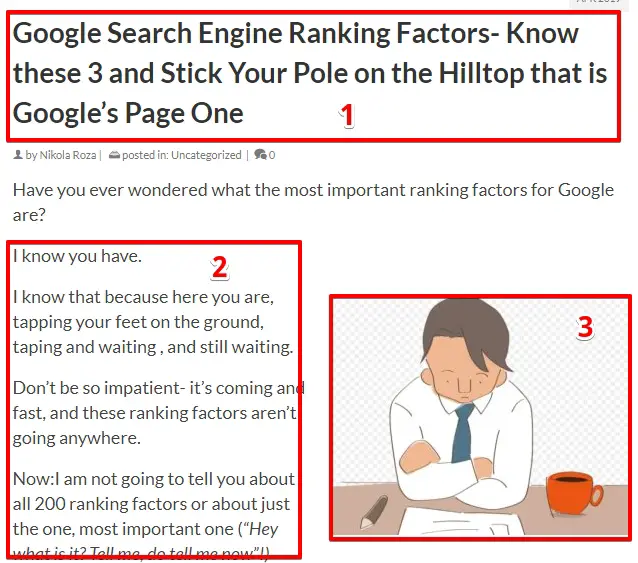
Do you now realize why you’ve read this far? 🙂
Bottom line: Focus on creating high-quality content.
I realize I’m starting to sound like a broken record but this is crucial.
It is the key to lasting success in the SERPs. Google now cares less about keywords.
No, now it wants every article to be ” THE” answer to the keyword it represents.
That is a huge chance for you.
Deliver thorough content that focuses on helping.
Do it at a time when your competitors are still writing 500- word posts.
Be better than them.
Remember, RankBrain is all about user intent.
By writing extensively you will cover more ground and like a spider’s web every good piece you write will catch many “intents” and you’ll get your fair share of rankings for it.
Simply put- exhaust the keyword and have your reader exhausted by the time he/she reaches the end.
Trust me they will be grateful for making them work so hard. 😀
After hard work comes sweet reward, like with this post:)

Google Ranking Factors – Conclusion- The most important ranking factor for Google is…?
There you go, friend.
As you can see, SEO doesn’t have to be complicated. When you take away the minor-ranking factors you are left only with the big fish you should focus on.
Dig deeper still and you’ll see that one of the three factors is irrelevant because it can’t be optimized for directly, and another two can be bundled into one.
To finish this article I will say it:
“Content is the most important ranking factor for Google. Good content gets links and keeps people on your page longer.
This causes RankBrain to “think” you’re the best and should be a the top of the pile”.
Thank you for reading. I want to thank Dexter for letting me write again for InfoBunny.
I hope to return many times over.
Please share if you learned something new.
Also, if you how any questions, don’t hesitate to pose them in the comment area below.
I think you’re awesome; and I, Nikola,
am signing out 😎





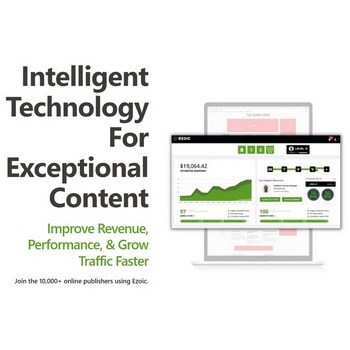
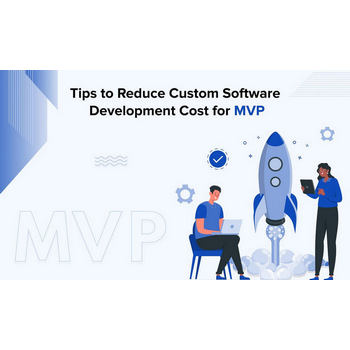

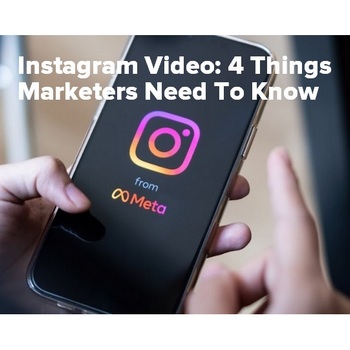
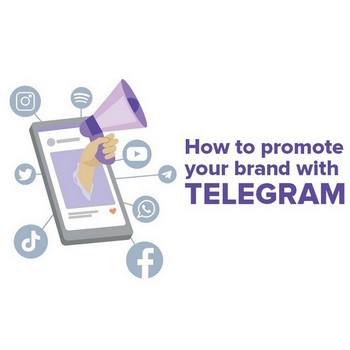
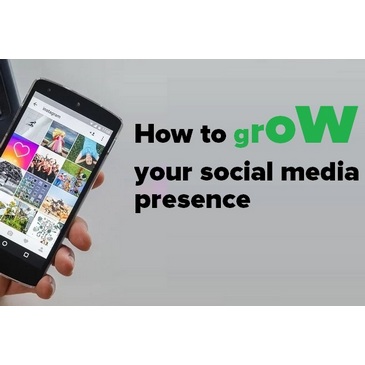
Nikola Roza
Hey Dexter,
thanks so much for featuring me again on InfoBunny. I’ll be around for the next week or so to respond to comment that come through.
Thanks:)
Nikola Roza recently posted…Jaaxy Keyword Tool Review and Analysis (2019)- Don’t Buy Before You Read!
Dexter Roona
No problem, great second article.
Ryan K Biddulph
Content drives it all Nikola. Get that down and search traffic is yours. I nailed down search over the past month by creating helpful, thorough content.
Ryan K Biddulph recently posted…How to Keep Up with Blogging
Nikola Roza
Yeah,
great content bring links shares recognition and ultimately converting traffic.
The key is to truly help.
Philip Verghese Ariel
Hey, Nik, good to see you again on Dexter’s space!
What an amazing post!
A to Z on this subject you brought out through this post.
A well researched and well written post.
Though some of the things I am already following, a good number of them yet to try. Bookmarked it for my further read.
Thanks so much for sharing this.
Thanks again for the wonderful shout out about my mega roundup post!
I appreciate. I will surely make mention of this post on my upcoming updated post “The people who honored Philipscom”
Keep sharing.
Hey Dexter good to be here again.
Will tweet it.
Wish you both a great time ahead.
Best
~ Phil
Philip Verghese Ariel recently posted…Philipsom Comment Authors In April 2019 – A Monthly Series From PVAriel.com
Nikola Roza
Hey Phil,
thanks for your kind words. Encouragement from you and my other blogging buddies is what keeps me going at times when I feel I’d rather give up.
But I will never give up!
No matter what…
Kyra Rodriguez
Good read! I’ve learned a lot from this. I know now how to get more traffic on my blog site. Thank you so much for sharing this well-written and informative post.
Kyra Rodriguez recently posted…How Google Search Console’s New Page Speed Report can Help Improve SEO
Nikola Roza
Glad I could help, Kyra.
Lisa Sicard
Hi Nikola, you make excellent points here. The one thing I find confusing is that people don’t have time today, so how are they to read 2,000+ word blog posts and watch 3+ minute videos that FB is now demanding we do?
Our attention spans have gotten shorter with social media and I don’t see younger folks sticking around to watch or read longer content but yet Google and FB are sort of demanding we produce it.
I try to mix mine up for that reason. Some longer, some shorter. I also don’t like adding words or paragraphs just for a numbers count.
I am always playing with headlines and use different tools, which is your favorite tool for it? Interesting on your negative words. One tool says not to and another says to use them – go figure! Thanks for the tips here Nikola and Dexter, I hope you both have a great weekend!
Lisa Sicard recently posted…Low-Cost Ways To Market Your Small Business Now
Nikola Roza
Thanks for you comment Lisa,
Your best bet is to write helpful posts that match the keyword 1:1. Than you can’t go wrong and word count doesn’t matter.
Nirvana
Nikola was one of the easiest people to work with on our interviews. We like to speak with professionals in the industry and featuring their stories and I agree with Nikola – interviews are a great way to get backlinks. This was a really good read and I enjoy your writing style immensely, Nikola. Keep crushing it!
Nikola Roza
Thanks Nirvana,
it was an honor for me to be featured on your site. I’m happy to share my story and hopefully inspire someone to take action.
Cheers!
Nikola Roza recently posted…7 Wealthy Affiliate Complaints and Their Solutions- Learn how to Pummel your Way to Success
Muhammad Bilal
Good read! I’ve learned tons from this. i do know currently the way to get additional traffic on my journal website. many thanks most for sharing this literary and informative post.
Digital roy Academy
Nice Article 🙂